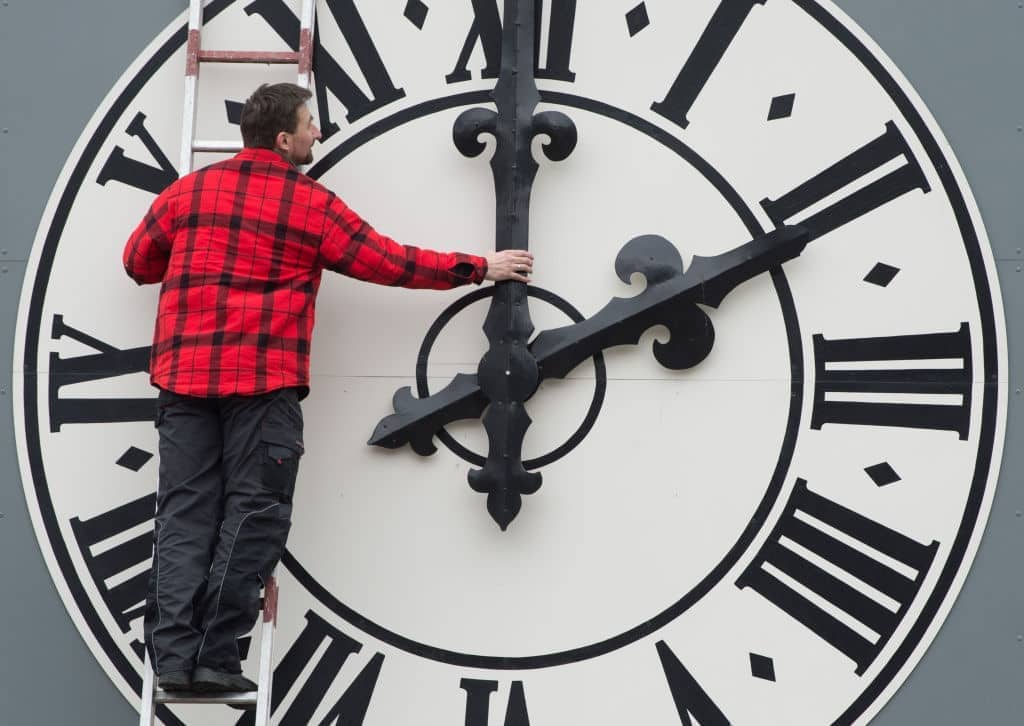Twice a year, every year, the changing of the clocks debate begins. So is it time to finally drop daylight saving and stick to British Summer Time all year round? Boris Johnson thinks so: the future Prime Minister weighed in on the subject back in 2011, claiming BST would ‘expand the economy and cheer everyone up’. Boris is right on both points, not least on the economic case for ditching the old habit of changing the clocks.
Dark winter evenings, made longer by daylight saving, make around half of Brits feel more depressed, according to one poll. Other surveys suggesting we’d exercise more were it lighter longer. Perhaps this point should be taken with a pinch of salt; is it really darkness, rather than the cold, wet weather, that stops us heading out for a jog? But it’s difficult to doubt that an extra hour of light on a winter’s evening would allow more people to squeeze in some form of activity that could be beneficial to our wellbeing and the economy. Perhaps Brits would be more likely to pop to the pub, or head to the shops if it was lighter for longer? Retail and hospitality, both sectors knocked sideways by Covid, would be two big beneficiaries of lighter evenings.
Could dropping daylight saving also make us safer?
Could dropping daylight saving also make us safer? There were an average of 278 more personal injury collisions in the two weeks after the clocks went back, compared to the previous fortnight, according to analysis of police data in the six years to 2018.
If we’re walking to our cars or homes in the dark, we’re also easier targets for criminals. Insurance figures suggest burglaries spike by more than a third after the clocks go back. One study from the United States found that, when clocks go forward, robbery rates for the entire day fall an average of seven per cent, with a much larger 27 per cent drop during the evening hour that gained some extra sunlight.
It is true that many people want to adapt their behaviour according to the season. As working patterns become ever-more varied, employees increasingly shift their day according to the pattern of light and dark. But the Coronavirus pandemic has weakened this argument: last week the Rail Delivery Group flagged that commuter train journeys are still less than half pre-Covid levels. Now that fewer people are spending the first chunk of their day travelling, dark mornings matter a whole lot less.
With politicians flocking to Glasgow to outdo each other when it comes to going green, the impact of BST on energy consumption shouldn’t be forgotten. Might getting rid of daylight saving usher in a big reduction in the use of electricity for powering lights? The data here isn’t clear cut; studies of neighbouring places that did and did not switch found little difference in electricity use. We’re more likely to turn lights on (before sunrise) than we are off (during daylight hours). But if it’s really, as Boris insisted on the first day of COP26, ‘one minute to midnight,’ then it’s probably worth exploring further.
So is it time to end the clock charade? We’ve been adjusting the clocks since before they were invented. Ancient civilisations shortened and lengthened days depending on the season. In the eighteenth century, Benjamin Franklin suggested Parisians should change their sleep schedules to save money on candles and lamp oil. At the turn of the 1900s, Edward VII put the clocks back half an hour at Sandringham so he could hunt for longer.
Now there are signs that things could be changing. In March 2019, the European Parliament decided trop c’est trop, and voted to dispense entirely with biannual clock changes. Yet last weekend, the EU still switched to winter time. Perhaps it is unlikely that we’ll be ‘leaping into the light,’ as Boris Johnson put it, anytime soon.







Comments